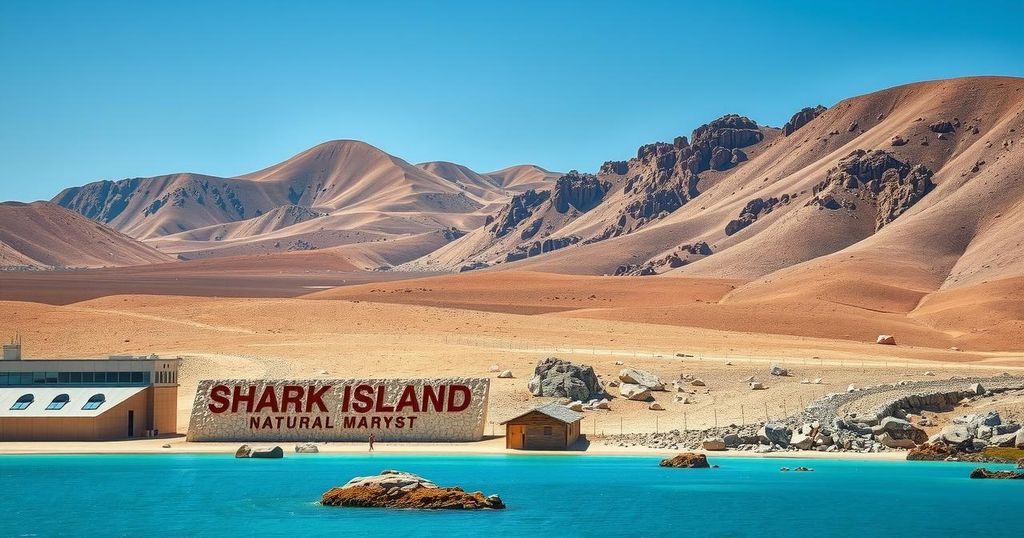Namibia is preparing for the Global African Hydrogen Summit in 2025, aiming for leadership in green hydrogen production to support European markets. Shark Island, a site of historical genocide, faces risks from proposed port expansions for hydrogen transport. Activists emphasize the need for recognition of past injustices and equitable access to coastal resources to foster meaningful reconciliation.
Namibia is set to host the Global African Hydrogen Summit in September 2025, aiming to position the nation as a key producer of green hydrogen for export, especially to European markets. However, the areas integral to this energy transition, such as Shark Island, bear painful historical ties to colonial violence and genocide, specifically involving the ocean as a burial site for numerous Namibians.
Shark Island, located close to Lüderitz, is under threat from proposed port expansions necessary for green hydrogen transportation. Historically known as Death Island, it was a concentration camp during German colonial rule from 1884 to 1915. Although the camp itself has been erased, recent investigations have renewed focus on its tragic history.
During the German colonial period, approximately 100,000 individuals, primarily from the Herero and Nama ethnic groups, were systematically murdered. Survivors faced incarceration and forced labor in concentration camps across Namibia, including coastal towns. Recent research by Forensic Architecture has digitally reconstructed these camps, revealing burial sites and emphasizing the imminent risks posed by infrastructure developments like the port expansion.
The ocean’s significance as a site of memory and justice has often been neglected. German colonizers removed Namibians to offshore locations, and the ocean became a grave for many victims. The local expression “the sea will take you” encapsulates the intertwined relationship between the sea and memories of death and suffering.
Local communities are actively engaged in restoring grave sites and erecting memorials, focusing on recognition and equitable access to maritime resources. Green hydrogen emerges as vital for global decarbonization, with Namibia viewed as a key location for future hydrogen production. However, the fulfillment of this potential hinges on the development of necessary infrastructure.
The proposed expansions in Walvis Bay and Lüderitz raise concerns regarding their impact on Shark Island and the historical context of the area. Activists urge the Namibian government to pause development plans and foster genuine engagement with reconciliation efforts.
These developments reflect ongoing European influence in Namibia’s green economy ambitions, raising issues of energy colonialism and the perpetuation of historical injustices. Collaborative projects between Namibia and European nations risk dispossessing local communities of their land and erasing cultural ties to the ocean and environment.
While initiatives labelled as “development assistance” from the German government appear beneficial, they frequently neglect the necessity of meaningful reparations for colonial transgressions. Black Court Studio, co-founded by Natache Iilonga, emphasizes the ocean as an active participant in historical dialogues, promoting awareness of cultural and spiritual connections to the sea despite colonial legacy.
The coastal waters of Namibia demand recognition as spaces of cultural significance rather than mere resources for European energy agendas. A renewed focus on historical awareness and existing relationships is essential for achieving genuine reconciliation and healing in the region.
In conclusion, as Namibia endeavors to become a leader in green hydrogen production, it must navigate the complex intersections of historical trauma and contemporary economic ambitions. The legacies of colonial violence at sites like Shark Island necessitate careful consideration and respect for local communities, their histories, and their rights. Ensuring that development does not repeat past injustices is vital for sustainable progress.
Original Source: www.inkl.com




